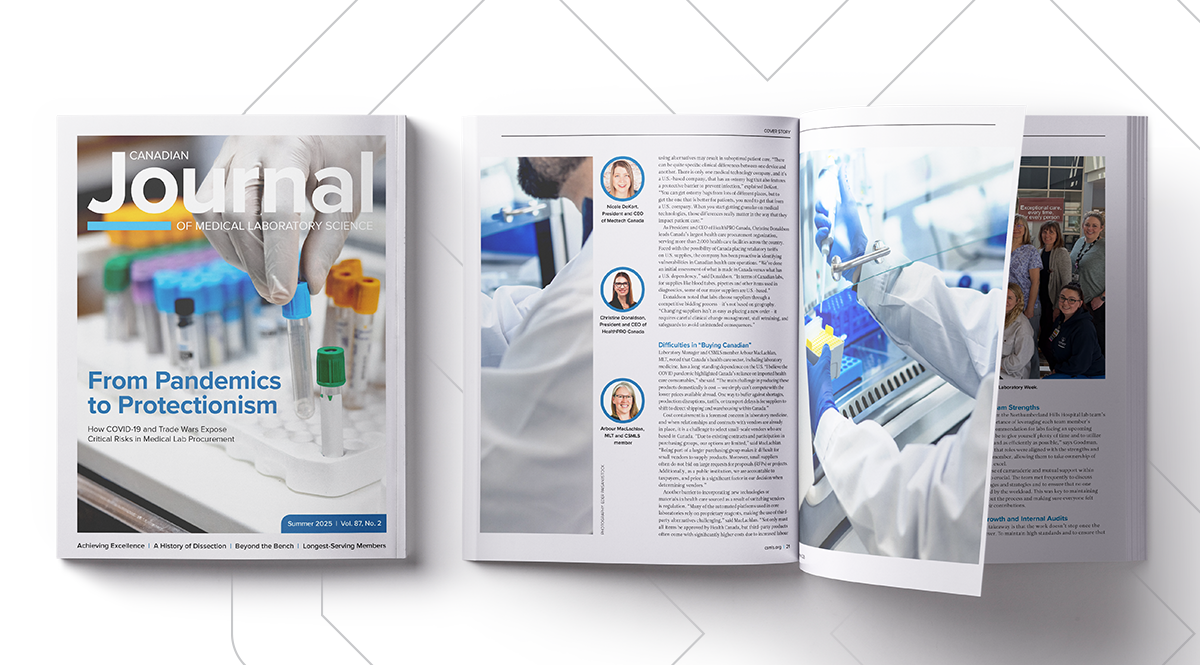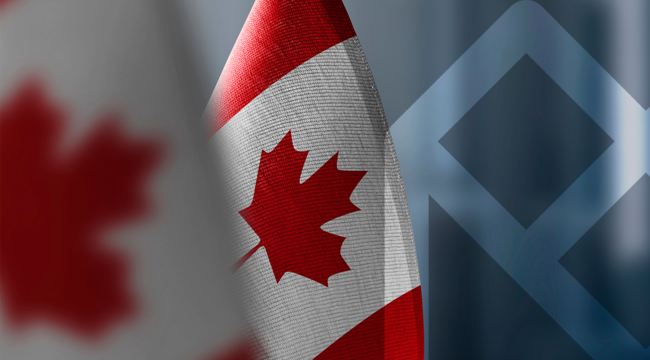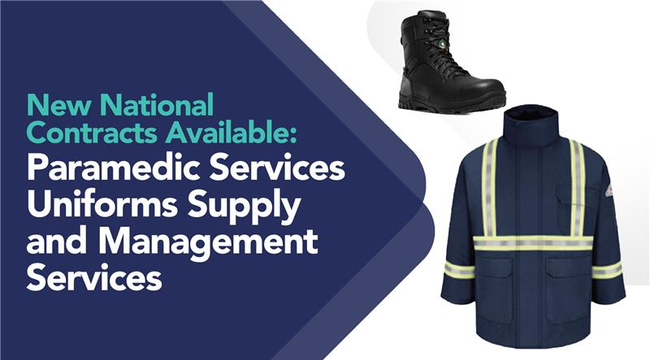HealthPRO Canada News
Protecting Canada’s Health Care Supply Chain: Christine Donaldson Featured in CJMLS

HealthPRO Canada’s President and CEO, Christine Donaldson, was recently featured in the Canadian Journal of Medical Laboratory Science (CJMLS) discussing the critical need to shield Canada’s health care supply chain from global trade disruptions. In “From Pandemics to Protectionism,” Christine highlights HealthPRO Canada’s proactive efforts to assess vulnerabilities, source Canadian-made alternatives, and work with suppliers to protect patient care.
In the article, health care leaders Nicole DeKort of Medtech Canada and laboratory manager Arbour MacLachlan examine how global trade tensions and tariffs could affect Canada’s medical supply chain, including factors such as the higher cost of domestic manufacturing, limited involvement from small-scale vendors, and regulatory constraints on adopting alternative products.
Unlike many industries that can quickly shift to new suppliers, health care operates within strict clinical, regulatory, and safety parameters. Medical devices and supplies are often highly specialized and not easily replaced, making any disruption to their availability a serious concern. With 40% of Canada’s imported medical technologies coming from the United States, the impact of tariffs on either side of the border could be significant.
Christine describes HealthPRO Canada’s proactive measures to identify vulnerabilities, assess Canadian manufacturing capacity, and work with suppliers on contingency plans. She notes that changing suppliers “isn’t as easy as placing a new order. It requires careful clinical change management, staff retraining, and safeguards to avoid unintended consequences.”
One example she shares is how HealthPRO Canada added a Canadian-made freezer to its contract portfolio after a supplier identified it as an alternative unaffected by tariffs. This option proved more cost-effective and was ultimately selected by two provinces for their health care facilities.
Adopting Lab Wisely guidelines is another strategy to help minimize disruption by optimizing lab test ordering, reducing duplication, and improving collection efficiency. Christine agrees that resource optimization is essential, adding, “While we stand with government in recognizing that action must be taken in response to unfair trade practices, that response should not come at the expense of patient care. Health care must be protected, and that means exempting medical supplies from any retaliatory trade measures.”
The article concludes that lessons learned from the COVID-19 pandemic—particularly the importance of industry and government collaboration—remain vital in managing future crises.
The full article is exclusively available to CJMLS members. Sign in to your CJMLS account to access.


